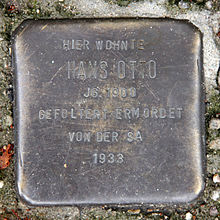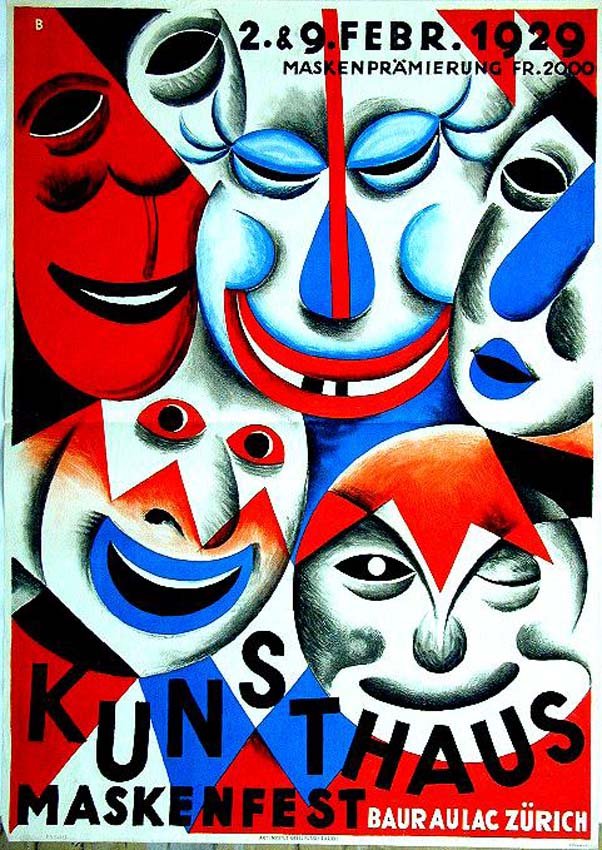
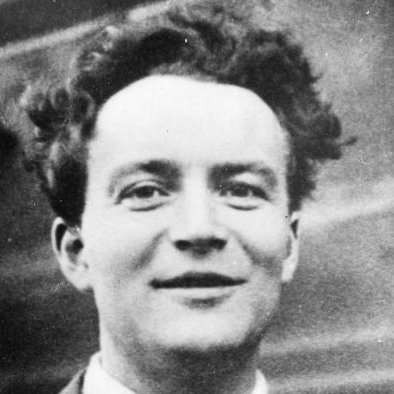
Hans Otto
Hans Otto was born in Dresden on August 10th, 1900 and attended school with the author Erich Kästner. He made his stage debut at the Künstlertheater in Frankfurt am Main in 1921 and, in October 1922, married the actress Mie Paulin, adopting the son from her previous marriage, Armin-Gerd Kuckhoff.
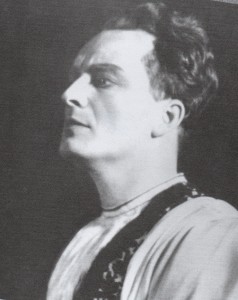
From 1924 to 1926, he worked at the Fürstlich Reussischen Theater in Gera, under the director Walter Bruno Litz and from 1926 to 1929 at the Hamburger Kammerspielen.
From there he came to Berlin for engagements at the Lessing-Theater, The Deutsches Schauspielhaus and by 1930, the Staatstheater am Gendarmenmarkt.
He rejected several offers of film work due to political reasons but did appear in the film Der gestohlene Gesicht (The Stolen Face) in 1930, directed by Erich Schmidt.
He was considered to be the perfect young, romantic lead and over these years had played in works by Schiller, Kleist, Büchner and Shakespeare.

Fiercely political and a committed activist, in 1930 he became Chairman of the German Workers Theater League, was a vocal spokesman of the Stage Workers Union (GDBA) and a Communist Party member.
On January 21st 1933, he starred in the premiere of Goethe’s Faust II at the Staatstheater, alongside Werner Krauss and Gustaf Grüngens, to enormous acclaim.
A week later Hitler was appointed Chancellor and four weeks after that Hans Otto’s contract with the theatre was terminated according to the Nazi Party’s new cultural policy. His last performance was on May 23rd 1933, after which he went into hiding and continued his, now illegal, political activities.

An offer to move to Vienna from the theatre director Max Rheinhardt was turned down and on November 14th he was arrested by the SA, in a cafe on Viktoria-Luise-Platz.
Over the next eleven days, he was moved to several locations around the city, being interrogated and beaten, before arriving in the Gestapo headquarters at Prinz-Albrecht-Strasse.
His continued silence and refusal to name political associates enraged his captors and he was thrown from a third-floor window of the building, in what was meant to appear to be a suicide attempt.
He died from his injuries on November 24th, he was 33-years-old.
Joseph Goebbels banned any announcement of his death or any attendance at his funeral, which was paid for by fellow actor Gustaf Gründgens. A distressed Bertolt Brecht wrote an open letter to the theatre community in Berlin asking for information on what had happened to him:
”Could you not go and check on him? We ask you to take care of a quite extraordinary, utterly indispensable man. A rare kind of man. Where is he?”.
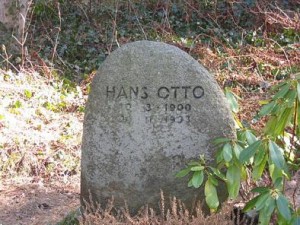
He was interred in the Wilmersdorfer Waldfriedhof Stahnsdorf.
The Hans Otto Theatre in Potsdam and the Theaterhochschule in Leipzig are both named after him. In 1975 his image was used on a DDR postage stamp and there is now a Stolpersteine dedicated to him outside his former Berlin home at Hansa-Ufer 5.

